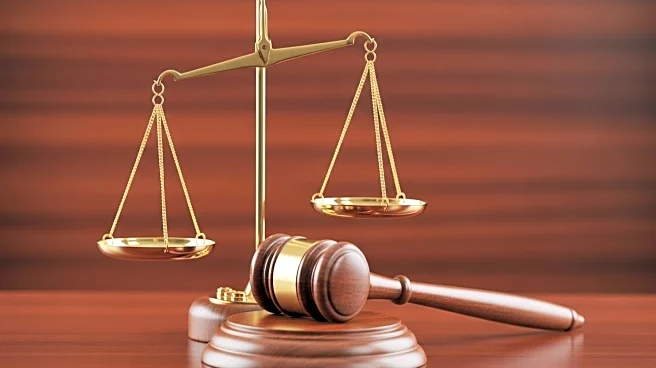What's Happening?
Justice Amy Coney Barrett has publicly addressed the perception of her as a 'swing justice' on the U.S. Supreme Court. During the inaugural SCOTUSBlog Summit, Barrett clarified that she does not consider herself a swing justice, a term often used to describe justices who do not consistently align with a particular ideological bloc. Barrett emphasized that her judicial philosophy is consistent, even if her decisions sometimes diverge from expectations, including those of the Trump administration. She noted that while people may agree or disagree with her decisions, she remains committed to her judicial philosophy and is not swayed by public opinion or external pressures.
Why It's Important?
Justice Barrett's clarification is significant as it addresses the broader discourse on the ideological balance of the Supreme Court. Her stance suggests a commitment to a consistent judicial philosophy, which could influence future court decisions and the perception of the court's ideological leanings. This is particularly relevant in a politically polarized environment where the court's decisions can have far-reaching implications on U.S. law and society. Stakeholders, including legal professionals, policymakers, and the public, may interpret her comments as an indication of how she might approach future cases, potentially affecting expectations and strategies in legal and political circles.
What's Next?
Justice Barrett's comments may prompt further analysis and discussion among legal scholars and commentators regarding her role on the court. Observers will likely continue to scrutinize her decisions to assess whether her actions align with her stated philosophy. Additionally, her remarks could influence how future cases are argued before the court, as attorneys may adjust their strategies based on perceived ideological leanings. The broader implications for the court's dynamics and its impact on significant legal issues will remain a topic of interest.
Beyond the Headlines
Barrett's remarks also highlight the ongoing debate about the role of personal philosophy versus public opinion in judicial decision-making. Her emphasis on tuning out public criticism underscores the ethical considerations judges face in maintaining impartiality. This discussion may contribute to a deeper understanding of judicial independence and the pressures faced by justices in high-profile cases.










